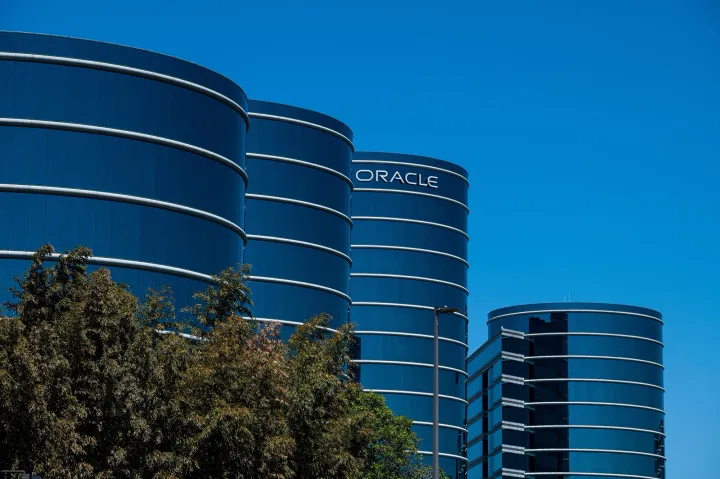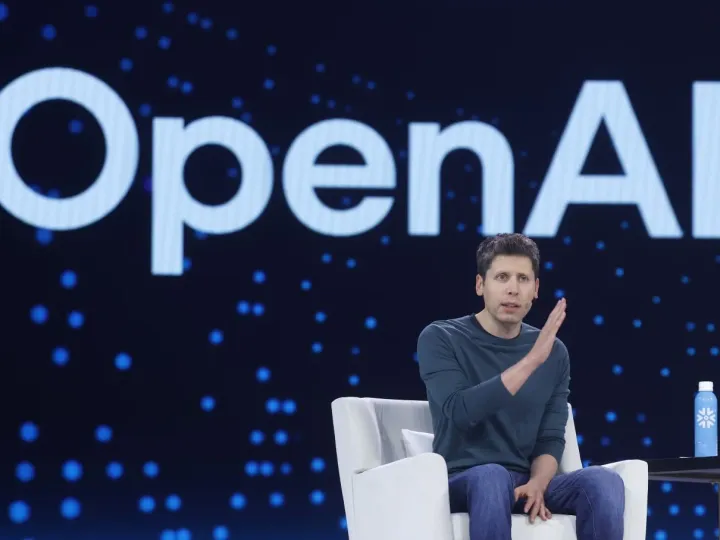Amazon Teams Up with Orbital Materials to Harness AI for Carbon Removal in Data Centers
Amazon partners with Orbital Materials to reduce carbon emissions in data centers using AI.

Amazon Joins Forces with Orbital Materials to Combat Data Center Emissions Using AI
Amazon Web Services (AWS), a key subsidiary of Amazon (AMZN), is embarking on a revolutionary partnership with Orbital Materials, an innovative startup focused on sustainable technology, to pilot solutions aimed at carbon reduction in data centers. The collaboration leverages artificial intelligence (AI) to enhance energy efficiency, water usage, and carbon capture, marking a significant step toward greener operations for the tech giant and its data centers.
In early Monday morning trading, Amazon's stock saw an uptick of 1.3% following the announcement, signaling positive investor sentiment about the initiative. This comes at a time when the environmental impact of data centers is increasingly under the spotlight, especially as AI adoption continues to surge.

The Growing Carbon Footprint of Data Centers
Data centers are the backbone of cloud computing and modern technology, but they also represent a major challenge in terms of energy consumption and carbon emissions. According to the International Energy Agency (IEA), data centers account for anywhere between 2% to 4% of global power use, with certain regions seeing even higher percentages, especially as demand for AI-powered services escalates.
As more businesses and consumers turn to the cloud for their digital needs, the energy demands of data centers continue to grow. AWS, which powers a significant portion of global cloud infrastructure, is increasingly aware of its carbon footprint. The company has committed to long-term sustainability goals, aiming to make its operations net-zero carbon by 2040.
Orbital Materials: Pioneering Sustainable AI Solutions
Orbital Materials, led by CEO Jonathan Godwin, is taking innovative steps in addressing the environmental challenges of the tech industry. The startup is focused on developing advanced materials that can help reduce water usage, improve chip cooling efficiency, and capture carbon emissions from data centers.
"Working with the market-leading AWS team will ensure that our suite of products in cooling, water utilization, and carbon removal enables the next generation of data centers powering the AI revolution," said Godwin. By the end of 2025, Orbital plans to begin piloting these cutting-edge technologies.
Orbital’s AI-driven solutions are built to make a significant impact on data center sustainability. By using Amazon’s cloud-based tools, like Amazon SageMaker JumpStart, Orbital aims to bring open-source AI models into the fold to help model sophisticated materials for efficiency and carbon capture.
The Role of AI in Reducing Data Center Carbon Emissions
Artificial intelligence is expected to play a pivotal role in the future of sustainability, especially in industries heavily reliant on technology, like data centers. Through AI-powered modeling, AWS and Orbital Materials plan to optimize the performance of cooling systems, enhance water utilization, and reduce the carbon footprint of operations. This collaboration allows for the development of AI models that can predict the most effective ways to remove carbon while also improving overall energy efficiency.
Howard Gefen, General Manager of AWS Energy & Utilities, emphasized the importance of this partnership: "Together, we have the opportunity to set new benchmarks for carbon removal and efficiency across the industry." The project has the potential to redefine how data centers operate, making them more eco-friendly without compromising their performance.
A Step Toward Sustainable Cloud Computing
As AWS continues to grow and expand its global footprint, sustainability is becoming a key focus. The partnership with Orbital Materials is part of Amazon’s broader commitment to reduce its carbon footprint. In fact, this initiative is likely to set a new standard for the entire cloud computing industry, particularly in the realm of artificial intelligence, which is expected to see explosive growth in the coming years.
In addition to the partnership’s environmental benefits, it could also accelerate the development of AI applications that are not only more powerful but also more sustainable. As the tech industry increasingly integrates AI into its operations, reducing the environmental impact of data centers will become even more essential.
What's Next for Amazon and Orbital Materials?
The collaboration is set to begin in earnest as both companies start working toward a 2025 pilot of the new AI-driven technologies. By then, Orbital Materials intends to have fully developed its AI models and carbon capture techniques, which will help drive the future of sustainable data centers. For Amazon, the move aligns with its long-term goals of becoming a leader in sustainability while continuing to advance the world’s transition to cloud-based technologies.
As the partnership progresses, it will be interesting to see how other tech giants follow suit and invest in similar sustainable innovations for their data centers. This collaboration between Amazon and Orbital Materials sets a strong precedent for eco-conscious business practices in the ever-growing tech space.
The Impact on AWS Re:Invent 2024
The announcement coincides with AWS's annual re:Invent 2024 conference, which is taking place in Las Vegas. The conference brings together cloud computing professionals from around the world, and the partnership between Amazon and Orbital Materials is likely to be a major talking point at the event. With discussions centered on the future of AI, cloud computing, and sustainability, this initiative showcases Amazon’s commitment to leading the charge in eco-friendly technology solutions.
Conclusion: A Green Future for AI and Cloud Computing
Amazon's partnership with Orbital Materials underscores the increasing importance of sustainability in the tech sector. As artificial intelligence continues to shape industries, the environmental impact of the infrastructure that supports it will become even more critical. This collaboration is a step in the right direction, demonstrating how AI can be used not only to power innovations but also to address some of the most pressing environmental challenges facing the world today.



